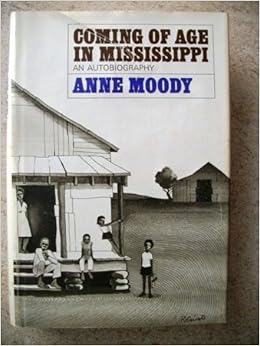


Before the sit-in I had always hated the whites in Mississippi. They believed so much in the segregated Southern way of life, they would kill to preserve it. She was "dragged about thirty feet toward the door by hair" and "smeared with ketchup, mustard, sugar, pies, and everything on the counter," while "about ninety white police offers had been standing outside the sore they had been watching the whole thing through the winder, but had not come in to stop the mob or do anything." Moody recalls: "After the sit-in, all I could think of was how sick Mississippi whites were. When she participated in a sit-in at a Woolworth's lunch counter in Jackson, with another African-American and two White activists, they ended up being severely beaten by a group of White high school students. Paper NOW! ⬇️ TOPIC: Essay on Coming of Age in Mississippi AssignmentMoody eventually became a Civil Rights activist, joining civil disobedience acts and sit-ins. First and foremost, African-Americans of Mississippi wanted bread and butter. She was initially angry with many African-Americans for being politically passive but later in her life Moody realized that struggling for civil rights was not their priority. She began to see this glaring inequality as a child. 'If Mama only had a kitchen like this of her own,' I thought, 'she would cook better food for us'" (Moody 29). Mama had cooked that food we were eating too. "That kitchen was pretty, all white and shiny. "It was the first time I had seen the inside of a white family's kitchen," Moody says, talking about the house where her mother worked as a maid. Moody's family was also poor and she offers colorful comparisons between the economic conditions of Whites and Blacks. African-Americans were so poor that they were afraid that joining Civil Rights Movement would further impoverish them and perhaps lead to starvation. The inability of African-Americans to challenge the political and social inequality was primarily rooted in grinding poverty they suffered from. Although Moody was disappointed with the behavior of other African-Americans, she eventually began to empathize with them because they did not want to lose even the severely limited rights they had. Her mother was against her involvement with NAACP and other Civil Rights organizations. When she inquired about the murder of Emmet Till, they remained quiet and urged her to do the same.

Moody was distressed with the inaction and hopelessness of African-Americans. The murderers were not properly punished by the justice system but the Mississippi newspaper nevertheless widely stated that the Court had handled the issue appropriately.


 0 kommentar(er)
0 kommentar(er)
